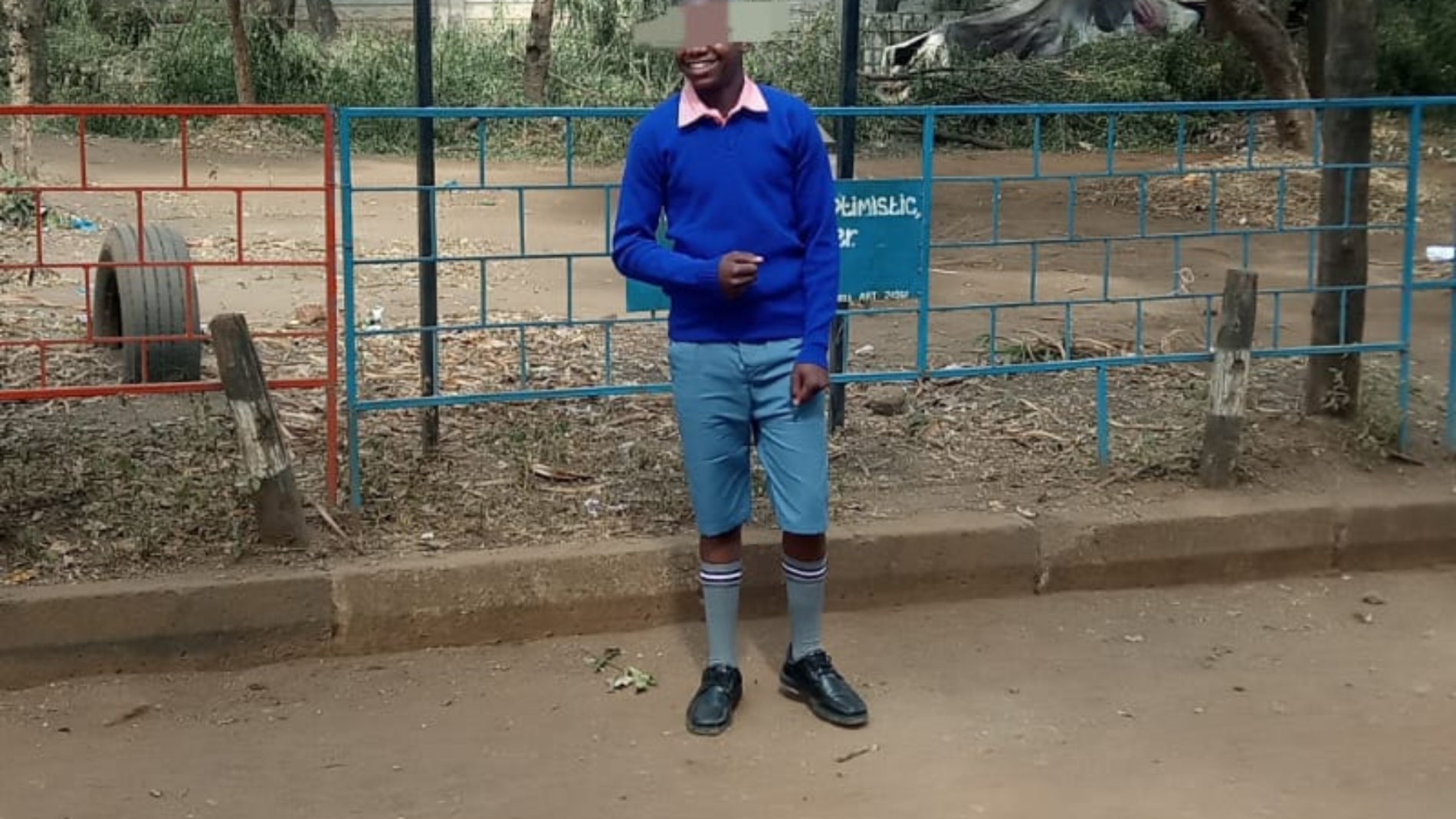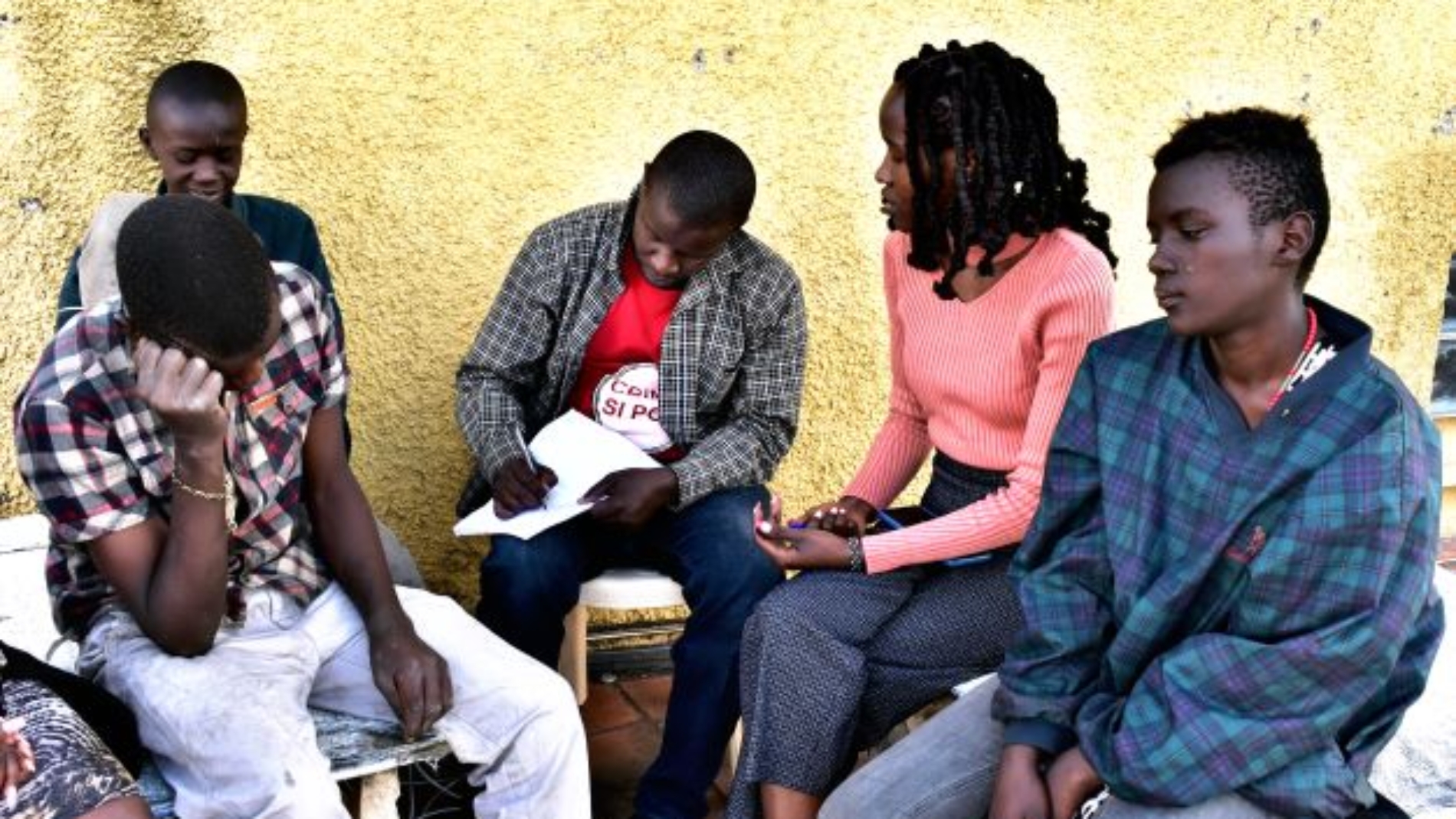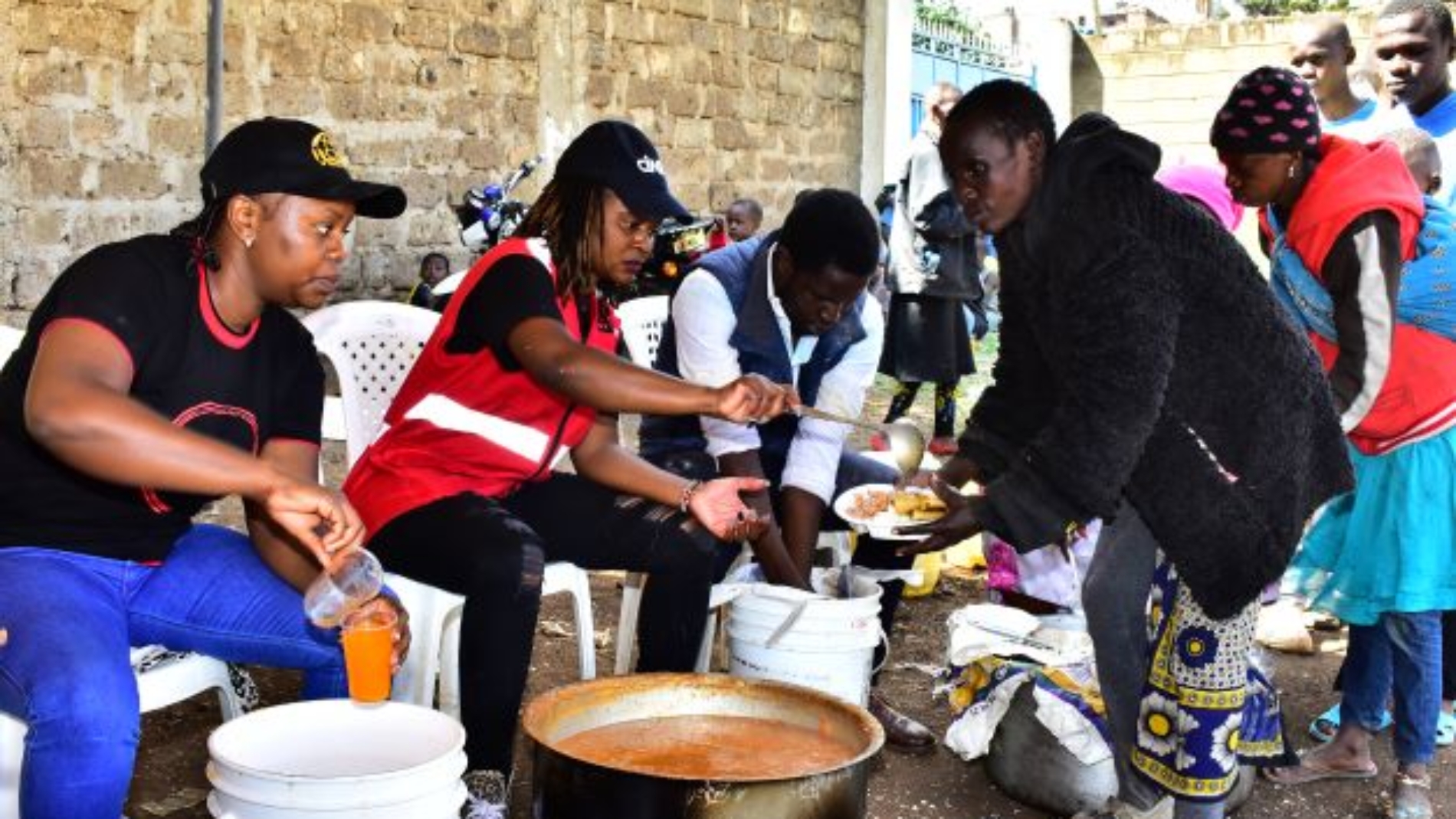When the Crime Si Poa community outreach program team met street families at Ngara Nairobi, something stood out on this day; a young 15-year-old shabby-looking but focused boy, AK.
His looks and demeanor betrayed the fact that he had not stayed in the streets for long, his indifference notwithstanding. It is however his introduction that caught our rapt attention. The boy from Central Kenya had only one desire: “I would like to go back to school and become somebody someday. This is not my life, and if I have an alternative trust, I will leave it,” he said amidst teary eyes.

“How then did you end up in the streets?” asked Ruth Wambui, Crime Si Poa Programs Officer in charge of Nairobi County. With unease and apprehension, he narrated how an adult had sent him to neighbor’s house to commit a crime. The young man was charged alone and ended up at a Borstal Institution for six months.
Upon his release, his parents, who worked as farmhands, refused to take him back fearing that he had not fully reformed. Stigma ran high! A.K had no one to turn to, and the correctional services could not retain him upon his sentence completion. “My father said that I was not welcome home as I stood to bring him bad luck, and he could lose his job,” said A.K. “The street was my last resolve, and it became my home,” he continued.
Armed with this information, our team through the street family reintegration project contacted his dad, who confirmed the story and flatly refused to take back his own son. “He is now a grown-up and can look for menial jobs like other men and support himself. We cannot have him back,” the dad curtly said, ignoring the fact that his son was still a minor.
“A. K’s story touched me, and I became restless. I knew I had to do something, and with the help of social services officer in Ngara, we found a shelter for rehabilitated boys,” said Ruth. The center, however, was just that, a shelter. “The first step had been done, and we had secured him a roof over his head, but then he needed schooling, which the institution does not provide,” Ruth added.
Despite having stayed in the streets, A.K managed to ace the entrance interview for admission to Muthurwa Primary School and is set to sit for his Kenya Certificate of Primary Education (K.C.P.E.) exam later this year. The school headteacher has great hope in A.K and is sure he will perform well. “He is a well-mannered boy who is determined. We will assist him in all the ways that we can to ensure that he performs well in his forthcoming exams,” he said.

“A. K’s story inspires us to keep the fire to change communities for the better burning. We strive to change one life at a time. However, due to the big need and limited resources, we are calling on more people and partners to support this noble cause,” said Ruth. She further thanked friends, donors and supporters of Crime Si Poa work in the streets and the communities.
To support Crime Si Poa, kindly visit : https://crimesipoa.org/donate-to-crime-si-poa/
About Borstal Institutions: The Borstal Institutions Act (CAP 92) provides for establishing borstal institutions and the detention of youthful offenders. The Act defines a youthful offender as a person who has been convicted of an offense punishable with imprisonment and has been found by the court, at the time of such conviction, to have attained the age of fifteen (15) years but to be under the age of eighteen (18) years.




